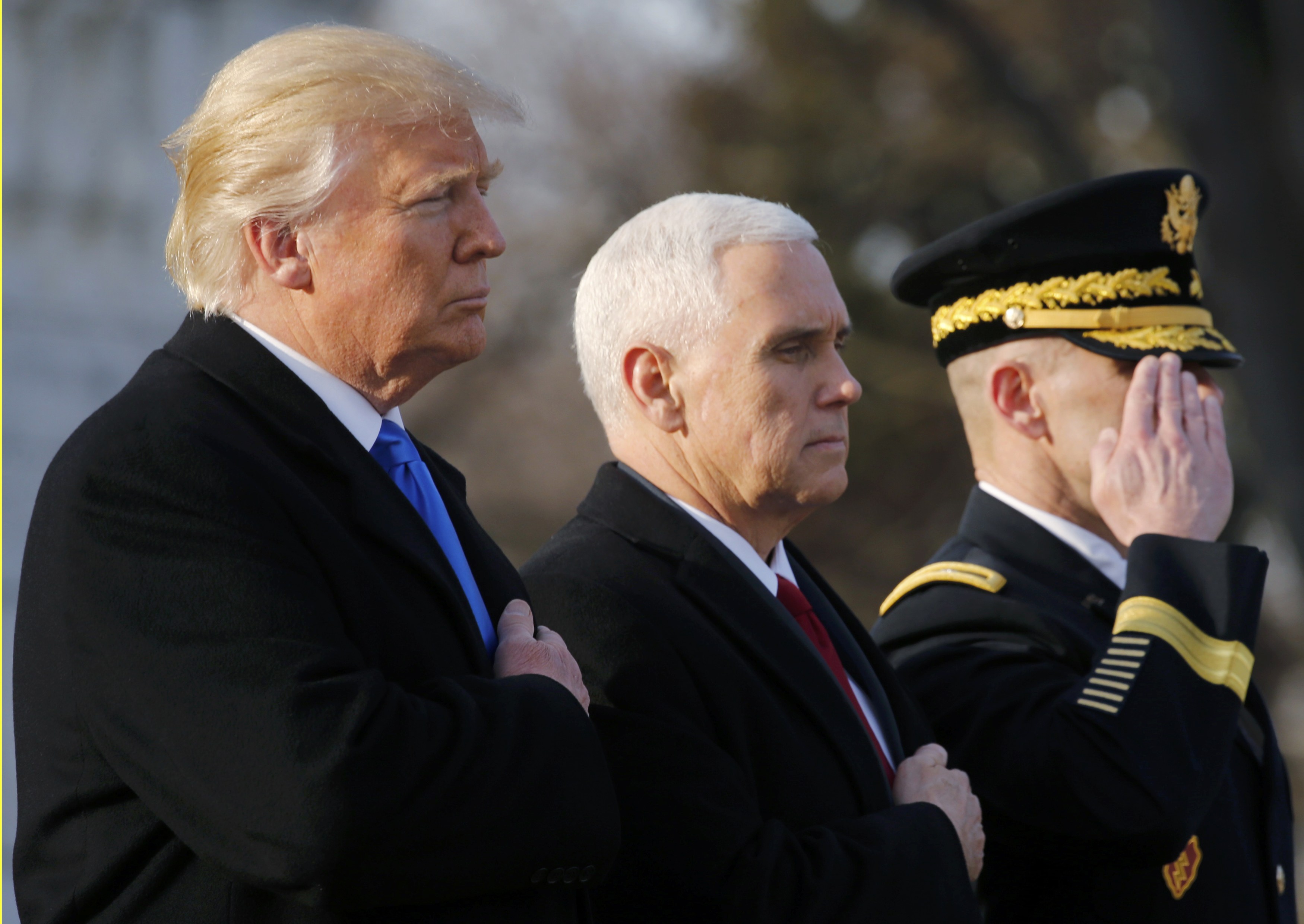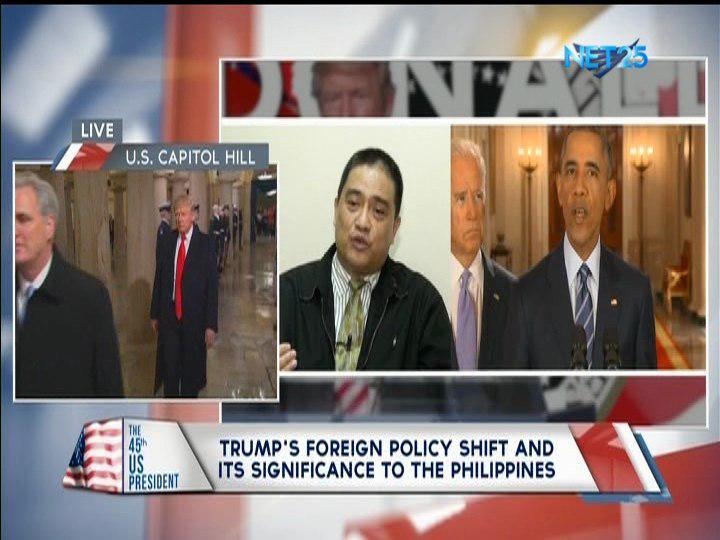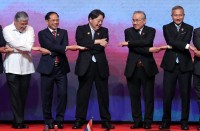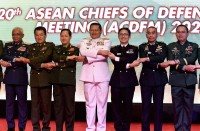
By Rowena Dela Fuente-Deimoy
Eagle News Service
QUEZON CITY, Philippines (Eagle News) — The Trump administration is expected to assert that the United States is the only superpower in the world.
With the formal assumption to office of US President-elect Donald Trump, the new administration is seen to embark on a new foreign policy which is way different from that of outgoing US President Barack Obama.
In an interview with Eagle New Service, International Relations analyst, Dr. Rene de Castro of the De La Salle University or DLSU, says the Trump government will be very active and impressing the old might of the United States.
Dr. De Castro was reminded of the policy embarked by President Ronald Reagan in the 1980’s when the United States was perceived to be declining during the time of President Carter.
“I think he will embark in a new foreign policy which I would describe as muscular compared to the Obama administration. He is bent on pursuing his goal of making America great again. This will mean we will see a very activist America that will be very confident of its power, asserting basically impressing that it is the only super power in the world,” said Dr. De Castro.
-Making America great again-
He said this reminded him of the presidency of Ronald Reagan, the 40th US President, in the 1980s, when Reagan announced that he would make America great again. This was after the administration of former US President Jimmy Carter.
“And of course President-elect Trump is repeating that mantra,” De Castro said.
He noted that both Reagan and Trump were Republicans. Both were also propelled into the presidency because of the powerful populist movement in the United States.
Dr. De Castro said President Donald Trump would rectify the impression that the United States is growing powerless in light of what’s happening in the Middle East and the Asia Pacific Region, as well as China’s expansive maritime claims in the South China Sea and the militarization of the islands it controlled in the disputed territories.

“President Obama adopted a policy of retrenchment. That was of course a realization that American power has its limits,” said the International Relations analyst De Castro.
When President Obama became president in 2009, the US was still reeling from the worst economic recession it experienced since the 1930s, he said.
“The United States was of course engaged in two unwinnable wars — one in Iraq, one in Afghanistan,” De Castro observed.
“Now we have a totally different situation right now. The US economy is doing well now. President Obama has basically ensured the US government would have a budget surplus,” he said.
“But at the same time there are also questions or challenges regarding America’s status as the only super power in the world. Number one is what’s happening in the Middle East. You have of course is, having controlled part of Iraq and Syria of course, and this basically created the impression that the United States is growing powerless in the face of this transnational insurgency movement,” he said.
De Castro said that China is also seen as a power to reckon with in the east Asia Pacific region, such as in China’s expansive maritime claims in the South China sea, and its militarization of the islands it controlled.
“So again this leads to the question if the United States is a power to reckon with in the region.
“Well, I believe President elect Trump would try to rectify this image and this notion that United States is declining. So he basically would, probably I would see direct military intervention in the Middle East, and possibly here in East Asia a more vigorous and muscular response to China’s effort to control the South China Sea,” the analyst De Castro said.
He said President Trump’s inexperience in politics and governance is the main reason why he is expected to use am unconventional approach in running his administration.
“Being one of the oldest traditional allies of the United States, President Trump’s assumption to power is of significance to the Philippines,” he explained.
If the Trump administration will use its muscular approach to restrain China’s expansion, Dr. De Castro said the Philippines will be caught in the middle of what he called a geo-strategic competition between the United States and China.
— Geo-political strategy-
The Trump administration is also expected to build up naval power in the region and invigorating its alliances to Australia, Japan and South Korea, the analyst from DLSU noted.
In the Philippines, President Rodrigo Duterte exercises an appeasement approach to address China in the issue of the territorial dispute.
But with the assumption to power of President Donald Trump, Dr. De Castro said the Philippine government should reconsider where it should stand as the new American president is expected to challenge the massive expansion of China.
And being a traditional treaty ally, Dr. De Castro says the United States would probably ask the Philippines to have a clear stand on the matter.
“That will really put the Duterte administration on the spot,” he said.
“I think it’s a geo-strategically significant that we should align ourselves with the power that is outside of the region, not with an emerging power who still has a sense of a breeze and has a geo-strategic goal that would affect our territorial integrity. We don’t have a territorial dispute with the United States,” he observed.
Dr. De Castro said the shift in the foreign policy of the United States under the Trump administration is nothing new.
Historically, US foreign policy has a period focusing on economic expansion. But the assumption of the Trump administration is foreseen to shift this to a nationalistic approach not because Trump is a Republican but all depending on the mood of the American population.
(Eagle News Service)







